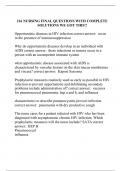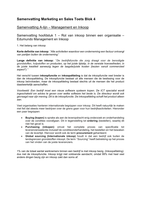Samenvatting
Summary Politics of the Earth Literature from Lecture 1-4
- Instelling
- Universiteit Utrecht (UU)
This document consists of Environmental Governance by J.P. Evans (2011) Chapter 1-3, The Politics of the Anthropocene by J. Dryzek & J. Pickering (2018) Chapter 1, Environment Law, Regulation and Governance: Shifting Architectures by N. Gunningham (2009), Towards productive science-policy interf...
[Meer zien]














